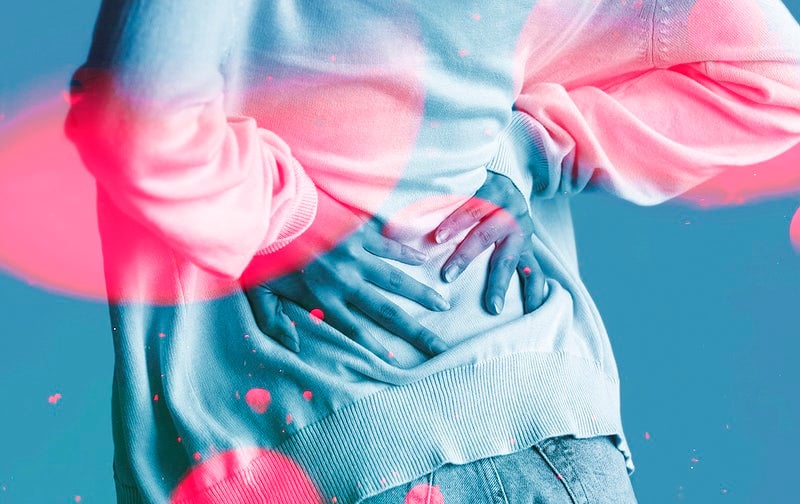Why Won’t Opioids Solve Your Pain? The Best Ways To Manage Chronic Pain
Chronic pain is a serious issue for many people. Unfortunately, many people become addicted to opioids after healthcare professionals prescribe them to help manage chronic pain.
What Is Chronic Pain?
Chronic pain is a serious condition that debilitates the body and the mind. The CDC defines chronic pain as “pain that lasts three months or more and is caused by a disease or condition, injury, medical treatment, inflammation, or even an unknown reason.”
According to researchers, psychological and social factors often contribute to pain severity and pain-related functional impairment. These psychological factors usually include depression, anxiety, PTSD, emotional distress, stress, insomnia, etc. For instance, many individuals develop chronic pain from a traumatic event like a botched surgery, unexpected health condition, a violent attack, a life-altering accident, etc. Shattered, such circumstances leave individuals grasping for the means to recuperate and rebuild their lives. Social factors entail whether individuals have access to a caring support system, solid medical care, resources, etc. Essentially, treating chronic pain requires a multifaceted treatment plan beyond prescribed medications like opioids.
Risks of Using Opioids to Treat Chronic Pain
More and more people turn to opioids to treat chronic pain every day. The National Survey on Drug Use and Health reported about 10.1 million Americans abused prescription opioids in 2019. With the growing reliance on prescribed opioids like morphine, oxycodone, or oxymorphone, we have a growing opioid epidemic.
What brought us here? Because of the effectiveness of opioids on the brain, doctors overwhelmingly prescribe them to patients. Opioids bind to specific receptors in the brain and inhibit their release. This inhibits pain signals from reaching the brain and makes patients feel better when taking opioids. Unfortunately, such stimulation on the brain leaves individuals susceptible to misusing opioids. In 2019, the National Survey on Drug Use and Health disclosed that 1.6 Americans abused their prescription pain relievers for the first time.
These medications cause addictions, overdoses, and dangerous side effects if not taken properly. The country is experiencing an increased rate of opioid-related SUDs and overdoses. As this opioid epidemic continues to terrorize the nation, more people desire alternatives to opioids to treat chronic pain.
Alternatives to Opioids for Chronic Pain
To get started, research the options of pain management therapy. Consider using a holistic approach, a blend of traditional pharmaceutical methods or non-pharmaceutical therapies, to treat chronic pain. Other treatment methods can work in tandem with the holistic approach to relieve the pain sensors in the brain. Ask a pain management team to support your recovery from chronic pain.
These recommended options entail therapeutic, homeopathic, and medical methods to consider for your pain management plan.
- Chiropractic: This option serves individuals suffering from many ailments such as low back pain, neck pain, and headaches. Chiropractors focus on restoring the spine or other parts of the body to proper alignment. Such a course reduces pain.
- Over-the-Counter Medication: Over-the-counter (OTC) medicines relieve aches and pains. Most individuals don’t find them addictive. Pain-relieving OTCs include acetaminophen (Tylenol) and nonsteroidal anti-inflammatory drugs (like aspirin and ibuprofen).
- Physical Therapy: This treatment applies techniques like heat or cold on the body to help individuals manage pain. Physical therapists may add exercise or massages to improve and restore muscle strength.
- Steroid injections: Individuals use steroid injections to relieve severe muscle spasms and nerve pain. Injections can treat the effects of fibromyalgia and certain forms of arthritis by reducing swelling and inflammation in joints and muscles.
- Behavioral Therapies: Research support using evidence-based therapies to enhance your pain management plan. Studies show that therapy assists individuals in addressing any problematic beliefs and behaviors that magnify their chronic pain. Untreated mental health disorders like emotional distress, depression, anxiety, and post-traumatic stress disorder can obstruct pain management plans.
- Acupuncture: As a traditional medical practice, it obstructs pain signals to the brain. To achieve this, practitioners insert needles at specific points on the body. The treatment improves circulation, reduces stress, lowers blood pressure, and soothes muscle tension. Scientists report that acupuncture can reduce the need for prescriptions to relieve chronic pain. This includes conditions like fibromyalgia, rheumatoid arthritis, and migraines.
- Antidepressants: Doctors prescribe them for the benefit of increasing levels of “feel good” chemicals in the brain. These drugs strengthen serotonin levels that improve the pain pathways.
- Yoga: Yoga aims to restore strength and relieve physical tension. This mind-body practice entails stretching and breathing techniques.
- Surgery: Though not the first option, surgery can be a valid response to severe pain caused by back problems or serious musculoskeletal injuries. Review the risks and benefits with your healthcare provider.
At Restoration Recovery, we recognize the gravity of chronic pain. Our treatment services aim to assist individuals in detoxing from the substance, finding more non-addictive alternatives to dealing with pain and discomfort, and improving the overall quality of life.
Many Americans struggle with chronic pain. They may turn to a pain management plan to help reduce pain, manage side effects, and improve their quality of life. Unfortunately, too many pain management plans offer individuals opioids to manage the pain. Despite drugs’ ability to alleviate pain, it leaves individuals susceptible to developing a SUD. The powerful effect of opioid medications leaves an imprint on the brain. We recommend individuals in recovery form a pain management plan that reflects the risks of addiction from opioids and protects them from relapsing. At Restoration Recovery, we help our participants consider their options for pain management. In addition, we consider the many other options for pain relief, including over-the-counter medications, less risky prescribed medications, behavioral therapies, surgery, physical therapy, and holistic methods. If you start to feel like you’re developing a substance use disorder with opioids, contact us today at Restoration Recovery Center by calling (888) 290-0925.






